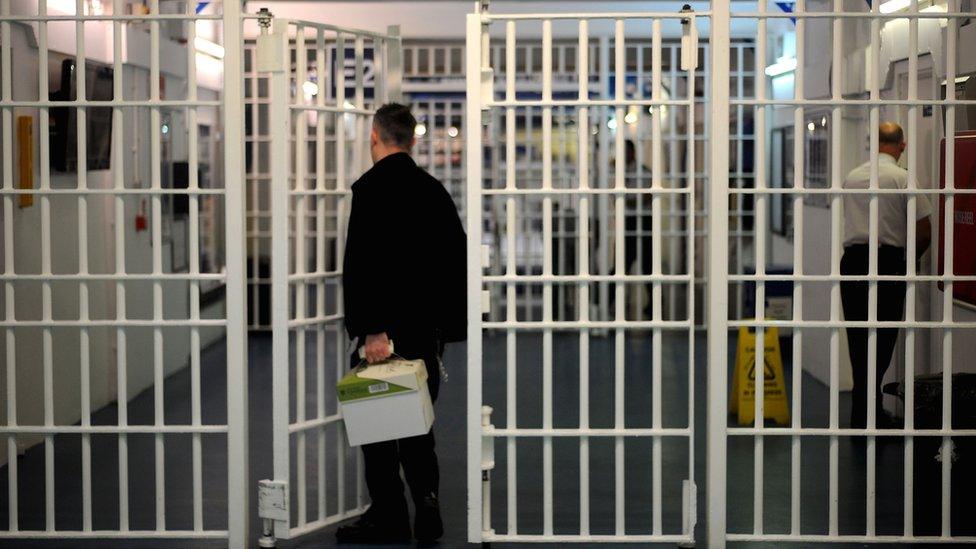Concern over 'remote supervision' of offenders by phone
- Published

Thousands of offenders given community sentences are being supervised via a phone call every six weeks, the chief probation inspector has said.
In a report, Dame Glenys Stacey said widespread use of the practice in England and Wales was "not acceptable".
The findings also revealed some junior probation officers had 200 cases at once. Dame Glenys said poor supervision was "a risk to the public".
The government said supervision by phone was only for low-risk cases.
But it acknowledged that improvements were needed to raise the standard of probation services.
The government's probation reforms, known as Transforming Rehabilitation, launched three years ago and split offender supervision between a state-run service and 21 privately-operated companies.
It created the National Probation Service (NPS) to deal with high-risk offenders, while Community Rehabilitation Companies (CRCs) were assigned low and medium-risk cases.
'Two-tier system'
An offender given a community sentence may be required to undertake unpaid work or attend a government-sanctioned programme.
In her annual report, Dame Glenys said the government's probation reforms had created a "two-tier and fragmented" system in which the private companies were "struggling" and she questioned whether the probation system could "deliver sufficiently well".
Dame Glenys Stacey became the chief probation inspector in March 2016
It revealed some offenders were only met once before being placed on "remote supervision" by private probation providers.
That could amount to no more than a telephone call every six weeks, with no further face-to-face meetings taking place.
Inspectors said the calls were little more than "checking in" and made it difficult to assess any change in the risk posed to the public.
These arrangements are allowed under the terms of the contracts, but the report emphasised that face-to-face work was vital.
It also found that inexperienced probation staff were responsible for monitoring 200 offenders each, when the recommended maximum number is 60.
Dame Glenys said: "I find it inexplicable that, under the banner of innovation, these developments were allowed.
"We should all be concerned, given the rehabilitation opportunities missed, and the risks to the public if individuals are not supervised well."
Jacob Tas, chief executive of social justice charity Nacro, said there had been almost daily reports of problems and called for the government to act "urgently" to address failings.
Analysis
By Â鶹ԼÅÄ home affairs correspondent Danny Shaw
It is hard to see this report as anything other than a damning indictment of the probation reforms introduced in 2014, by Chris Grayling, when he was justice secretary.
The 113-page document details how the privatised part of the new system simply is not functioning properly, with unmanageable caseloads and supervision-by-phone the most glaring examples.
The significance of these failings should not be under-estimated.
Successful rehabilitation hinges on having a relationship of trust between offender and probation officer. That is exceptionally difficult if they are not in regular face-to-face contact.
The findings will also do little to inspire confidence in community sentences at a time when the government is encouraging judges and magistrates to consider non-custodial alternatives to the more costly option of imprisonment.